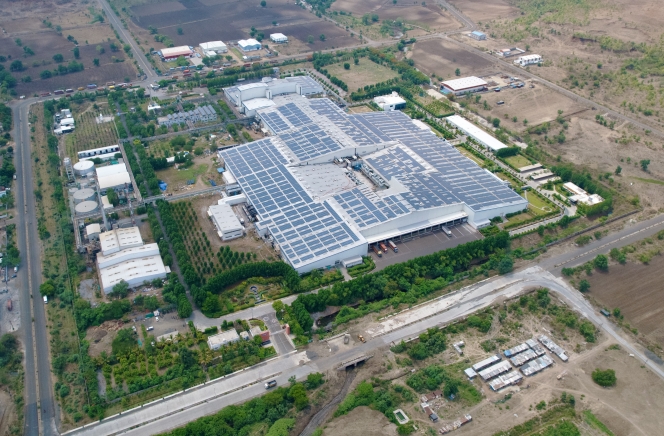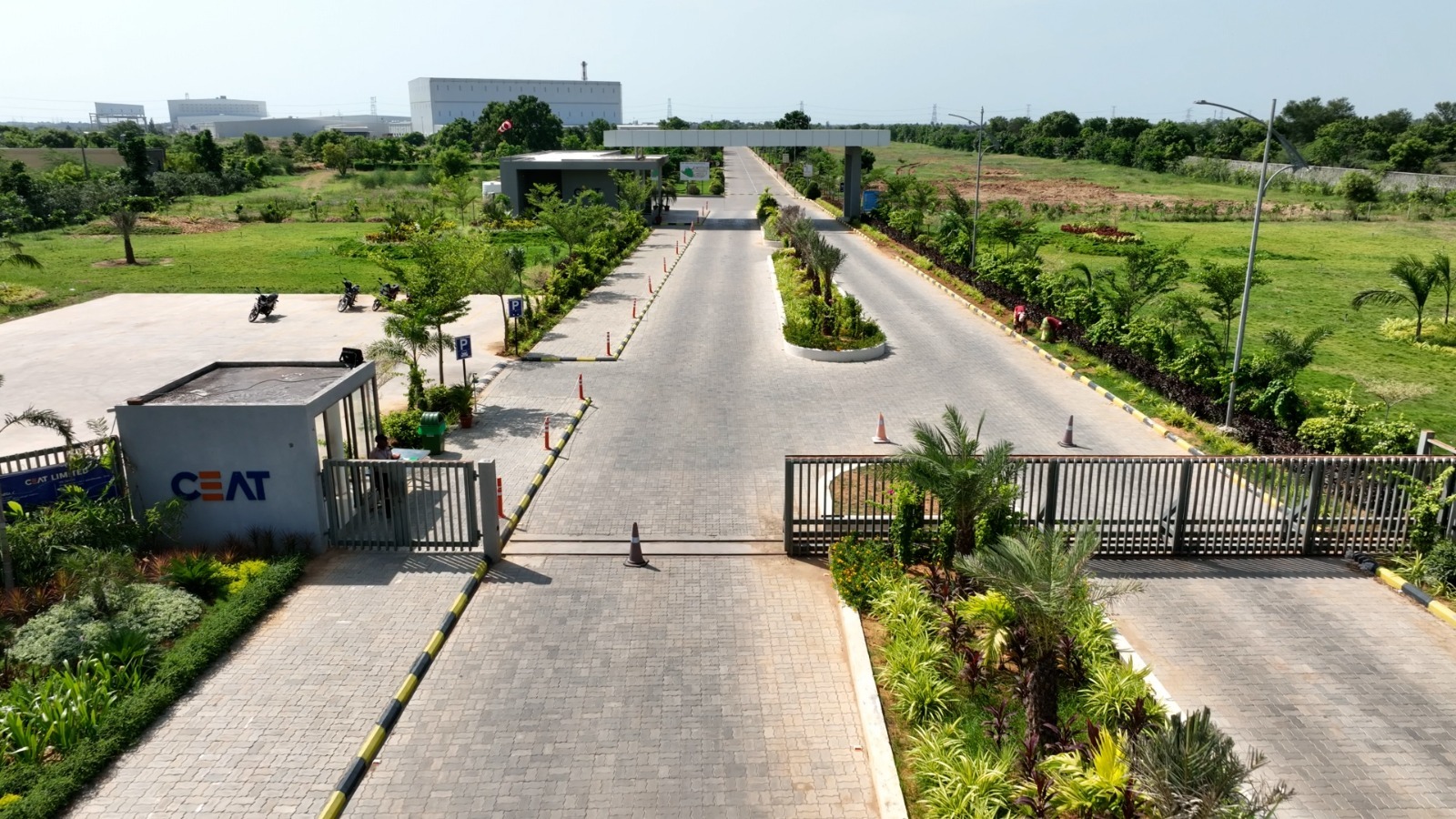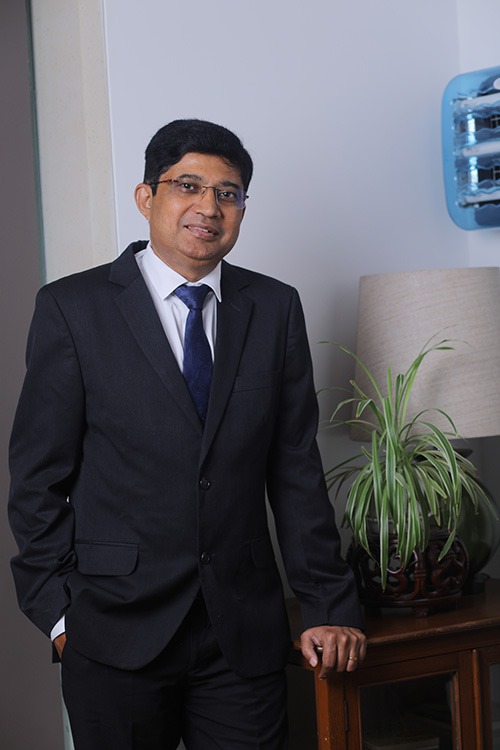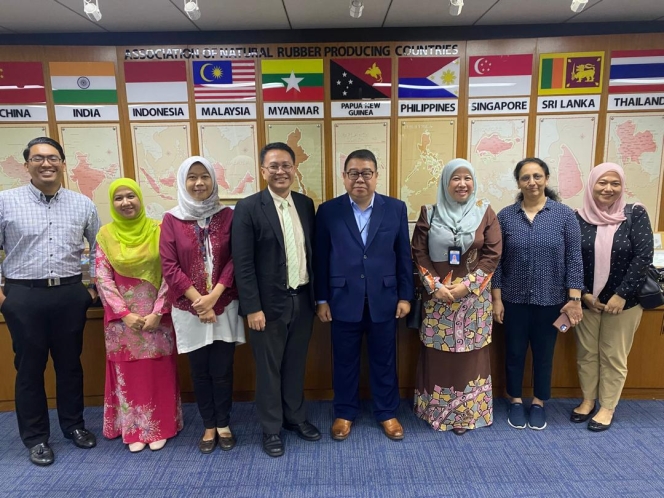- CEAT
- 4IR
- Fourth Industrial Revolution
- Digital transformation
- Automation
- AI
- IoT
- Smart Factory
- Manufacturing Execution System
- Predictive Maintenance
- Sustainability
CEAT Cuts Operational Costs By 30% With 4IR, Set To Expand To Nagpur Plant
- By Sharad Matade & Gaurav Nandi
- March 01, 2025

Like many other sectors, India’s tyre industry is undergoing a massive digital transformation. Companies like CEAT have been at the forefront of this shift, adopting state-of-the-art technology.
The company was recently included in the World Economic Forum’s Global Lighthouse Network due to its impactful digital transformation using Fourth Industrial Revolution (4IR) technology.
The leading tyre manufacturer has also planned to extend its technological advancements to its Nagpur plant. “CEAT’s vision for a smart factory dates back to 2015, when it commissioned its Nagpur plant. The groundwork, however, was laid earlier at Halol, where barcode tagging was introduced for traceability and error-proofing. While Nagpur became the first facility to implement a manufacturing execution system (MES), deeper analytics and machine learning capabilities were not yet in focus between 2015 and 2020,” revealed Jayasankar Kuruppal, Sr Vice President –Manufacturing, during an exclusive interview with Tyre Trends.
As Halol expanded and exports to Europe surged by the early 2020s, CEAT had to rethink its manufacturing strategy, shifting from a high-volume, low-variant model to a high-variant, low-volume approach. Once limited to 60-70 stock-keeping units (SKUs), the company's passenger car segment expanded nearly fivefold to meet European demand, requiring a complete overhaul of production workflows.
At the same time, the adoption of silica-based compounds, which is critical for wet grip and rolling resistance, posed new challenges. These materials inherently increased cycle times, impacting capacity utilisation. While Halol was not initially designed for high-silica production, the company’s Chennai plant incorporated necessary corrections. However, tighter OEM specifications and European market requirements led to higher scrap and yield losses.
Recognising the limitations of conventional manufacturing, CEAT turned to 4IR technology to optimise its processes. The 4IR technology refers to the advanced digital and automation-driven technologies transforming industries today. It builds on the Third Industrial Revolution by integrating AI, IoT, big data and robotics to enhance efficiency and decision-making.
“The digital transformation began at the Halol plant, expanded to Chennai and is now planned for Nagpur. Between 2020 and 2022, CEAT developed and deployed over 80 digital use cases, earning its first Lighthouse Factory designation. This data-driven manufacturing approach is now being systematically rolled out across its entire production network,” added Kuruppal.
Intelligent factories
4IR plays a crucial role in tyre manufacturing and recycling by enhancing predictive maintenance through IoT sensors, increasing energy efficiency via AI, production optimisations and advancing smart tyres with real-time monitoring.
On the other hand, an intelligent or smart factory in tyre manufacturing is defined by two core pillars, namely automation and digital intelligence. Traditionally, the tyre industry has been labour-intensive, but the shift towards smart factories is transforming operations through seamless machine-to-machine communication, real-time data sharing and AI-driven decision-making.
The first layer of an intelligent factory is pure automation. This includes automated machines for tyre handling, programmable logic controllers for managing machine operations and automated warehousing systems to ensure smooth flow.
“For a plant to be truly smart, data must move seamlessly across all these systems, creating a connected ecosystem. This integration extends to ERP systems and advanced AI/ML-powered analytics, optimising throughput and efficiency,” said Kuruppal.
The next stage is where operations run end-to-end with minimal human intervention. CEAT has already implemented elements of this, particularly through curing-to-dispatch automation, where tyres move untouched from uniformity testing to segregation, grading, storage, retrieval and final dispatch. It also has AI-driven IoT integrations that enhance energy efficiency, yield optimisation and first-time-right accuracy across all processes.
“The fusion of AI, IoT and automation is enabling tyre manufacturers to move from traditional manual-heavy processes to a digitally orchestrated, high-efficiency production model,” quipped Kuruppal.
CEAT’s production capacity spans multiple plants, each specialising in different tyre categories. The Chennai and Halol plants both produce 20,000 passenger car tyres daily. The Nagpur plant, India’s largest two-wheeler tyre manufacturing facility under one roof, with a capacity of close to 78,000 two-wheeler tyres daily.
Digital implementation

Curing operations in CEAT’s passenger car and truck tyre segments are almost entirely automated. While the curing medium remains unchanged, continuing with a combination of steam and nitrogen across Halol, Chennai and other facilities, the company is also exploring radical new processes, though still in the proof-of-concept stage.
One key digital use case implemented in Chennai focused on reducing steam consumption through real-time process monitoring. Traditionally, mould heating followed fixed time cycles (e.g. 120 or 150 minutes). CEAT optimised heating based on actual temperature data, cutting steam consumption by almost 30 percent by integrating sensors and applying a machine-learning model.
The manufacturer has invested approximately INR 450-500 million in capital expenditure across its three factories to implement automation and digital transformation initiatives. On the operational expenditure side, CEAT spends INR 60-70 million annually on software licenses, infrastructure upgrades, sensors and scanners to sustain these smart factory systems.
Adopting smart manufacturing technologies has led to significant cost reductions for CEAT. Factory conversion costs at Chennai and Halol have decreased by 20-30 percent, driven by lower energy consumption, improved yield, higher manpower productivity and throughput enhancements.
Lead times from order placement to tyre dispatch have been cut by 50-55 percent, significantly improving supply chain efficiency. Additionally, material wastage has been reduced with process scrap, both component-level and finished product waste, dropping by 25-30 percent, resulting in substantial raw material savings.
Alluding to how difficult was it to implement such extensive digital changes, the executive explained, “From an infrastructure standpoint, Chennai had a clear advantage over Halol since the latter was commissioned in 2010 and 2015, when network and digital infrastructure were not as advanced. Unlike Chennai, Halol still does not have a fully integrated MES, making digital transformation more complex.”
“However, the approach to smart manufacturing differed at both plants. At Halol, the primary focus was on efficiency improvements. In contrast, Chennai underwent a more comprehensive transformation, covering the entire manufacturing chain from design and production to dispatch and supply chain optimisation. The goal at Chennai was to reduce overall turnaround time, significantly cutting the cycle from customer order receipt to final dispatch,” he added.
While Chennai benefited from a stronger digital foundation, CEAT did not merely replicate Halol’s use cases but developed new ones tailored to Chennai’s specific needs, further driving end-to-end operational efficiency.
Commenting on the challenges surrounding this paradigm shift, the executive noted, “Integrating legacy systems with Industry 4.0 technologies posed a significant challenge as ensuring compatibility between older manufacturing infrastructure and new automation, IoT and AI-driven solutions required meticulous planning and phased implementation.”
“Another critical hurdle was maintaining data quality and governance, necessitating robust validation processes, data lineage tracking and an accountability framework to enhance data integrity and reliability,” he added.
Answering whether such transformation is possible on OTR production lines, he said, “Unlike passenger or two-wheeler tyres, OTR tyres have a longer cycle time and high levels of customisation, making digital automation less complex but highly specific. While digital transformation is feasible, CEAT plans to prioritise full automation at Nagpur in the next 18–24 months, before shifting focus to digitalisation in OTR production.”
Workforce re-alignment

CEAT is reshaping its workforce strategy to align with its digital transformation, ensuring that shop floor employees are equipped and actively involved in adopting new technologies.
It has digitised over 100 operator touchpoints to secure operator buy-in. The programme simplifies shop floor tasks through digital tools, MES integration and real-time dashboards, allowing operators to make decisions independently and reducing reliance on supervisors. Every operator has undergone basic digital awareness training to facilitate this transition.
A key move was the introduction of business translators, who are frontline supervisors with strong technical acumen. They bridge shop floor pain points with digital solutions. Working alongside data engineers and scientists, these individuals co-develop AI-driven use cases, such as reducing setup time in mixing processes to improve efficiency.
The company also strengthened its talent pipeline, hiring computer science graduates, a rarity in the tyre sector just a few years ago. It has pioneered hiring female operators in the tyre industry, beginning in Halol in 2009.
“Today, 24–30 percent of shop floor employees in Chennai and Nagpur are women. While digitalisation isn’t the primary driver of this shift, automation has made traditionally labour-intensive jobs more accessible. The company also enforces pro-women policies, including home pick-ups and drop-offs, designated rest areas, female security and an internal support forum (V Power) to address workplace concerns,” informed Kuruppal.
When asked whether digitisation will lead to a cut in vacancies, Kuruppal stated, “Contrary to fears that digitalisation reduces shop floor jobs, we find ourselves grappling with the bigger challenge of talent attraction. Post-pandemic, fewer young workers are willing to pursue manufacturing roles, with many opting for finance, retail and IT-driven careers instead. This trend is evident across major tyre-producing states like Tamil Nadu, Maharashtra and Gujarat.”
“While automation and AI reduce physical strain and deskill certain operations, a fully manless tyre plant remains economically impractical in the near term. However, with rising labour costs and shrinking workforce interest, a fully automated future – perhaps within 15–20 years – isn’t off the table,” he added.
Sustainability through digitisation
CEAT is driving sustainability through digital transformation, reducing energy and water consumption while lowering its carbon footprint. Energy efficiency measures have led to a 15 percent reduction in power consumption at Halol and 25 percent at Chennai.
Renewable energy accounts for 40 percent of the company’s power mix, cutting Scope 1 and Scope 2 carbon emissions by nearly 30 percent. Water usage has been reduced by 30-35 percent over the past three years through steam optimisation, with future plans to eliminate steam in curing.
In green material adoption, integrating silica-based compounds in tyre manufacturing has required process adjustments as it increases cycle time. CEAT collaborates with equipment manufacturers to enhance efficiency. It has upgraded mixers to improve silica processing and support its shift towards sustainable materials.
Commenting on future plans to implement digital solutions, Kuruppal said, “We plan to integrate virtual and mixed reality into the manufacturing processes to enhance equipment maintenance and reduce mean time to service. We are also exploring AI-driven process optimisation, as these models will auto-correct processes in real-time, enhancing product consistency and accelerating decision-making. These technologies will also help identify and eliminate bottlenecks in manufacturing and planning, ensuring a more agile and efficient production flow.”
“The company is looking into GenAI to address complex operational challenges. AI-driven predictive maintenance will improve equipment reliability by forecasting potential failures before they occur. Additionally, GenAI will optimise supply chain and production planning, ensuring better resource allocation and efficiency,” he added.
ANRPC Hosts Malaysian Rubber Delegation
- By TT News
- January 31, 2026

The Association of Natural Rubber Producing Countries (ANRPC) recently hosted a high-level delegation from the Rubber Development Division of the Ministry of Plantation and Commodities Malaysia at the ANRPC Secretariat. Led by Peter Dennis of Malaysia’s Rubber Development Division, the group met with ANRPC Secretary-General Dr Suttipong Angthong and his team.
The discussions centred on essential industry issues, particularly the vital importance of achieving stable rubber prices for the benefit of producers and the broader market. Conversations further delved into analysing recent market trends and their consequences for global production and trade dynamics.
This engagement highlighted the ongoing necessity for cooperative action to address sectoral challenges, advance sustainability and ensure resilient growth in the face of variable economic conditions.
Bridgestone Unveils Next-Gen Blizzak IcePeak Tyre With Dual Ice And Snow Certifications
- By TT News
- January 31, 2026

Bridgestone Americas has unveiled its latest flagship winter tyre, the Blizzak IcePeak, which will launch nationwide in May 2026. This new tyre is distinguished as the first from Bridgestone to achieve both the rigorous 3-Peak Mountain Snowflake and Ice Grip certifications, marking a significant advancement in winter performance. Designed to cater to a broad range of vehicles – including sedans, minivans, CUVs, SUVs and trucks – the IcePeak will replace the Blizzak WS90 and DM-V2 models. It will be available in 107 sizes, ultimately covering approximately 97 percent of the US light-duty vehicle market, with the majority of sizes ready at launch.
The tyre’s development centres on delivering superior winter traction alongside improved durability and efficiency, leveraging the company’s ENLITEN technology. This integration aims to lower rolling resistance for better fuel economy and extend tyre wear life, offering long-term cost savings for drivers. Internal testing indicates the IcePeak surpasses the wear life of its predecessors while maintaining effective traction. Its compatibility extends to conventional, hybrid and electric vehicles, emphasising its modern engineering.
Key to its performance is a suite of specialised technologies. Bridgestone’s patented MultiCell compound is engineered to enhance stopping power on ice, a claim validated by the official Ice Grip certification. This certification requires performance on ice to exceed a standard reference tyre by at least 18 percent in braking tests. For snow traction, the tyre employs optimised tread blocks and full-depth 3D sipes to create additional biting edges, helping vehicles gain grip and reduce spin.
Building upon the Blizzak lineage, which spans nearly four decades of innovation, the IcePeak introduces refined design elements. Its optimised compound is formulated for added durability across multiple winter seasons without sacrificing grip. A newly unified global tread pattern incorporates several critical features: strategically placed sipes are angled to maximise the gripping edge, protrusions on tread blocks prevent water intrusion on ice and micro-grooves help clear the thin water film that forms on icy surfaces. Together, these features aim to provide drivers with reliable control in wet, snowy and icy conditions, advancing the brand’s reputation for winter safety and performance.
Ian McKenney, Senior Product Manager, Bridgestone Americas, said, “Our Blizzak tyre lineup moves from strength to strength, continually raising the standard for impressive winter weather control. With the application of ENLITEN technology, we are able to expand the tyres’ performance envelope in all directions while also delivering greater durability and reduced rolling resistance, while promoting a focus on enhanced sustainability.”
Citira Rolls Out Nationwide 24/7 Tyre Breakdown Service For Swedish Fleets
- By TT News
- January 31, 2026

Citira, a circular tyre management provider, is introducing a nationwide emergency tyre service in Sweden for commercial fleets, a strategic move to become a comprehensive tyre management partner. Named Citira 24/7 Däckjour, it provides a dedicated contact point for heavy vehicle operators needing immediate assistance, day or night.
This service connects customers to an established, quality-assured network of professional tyre workshops across the country. By utilising pre-assembled replacement wheels ready for immediate deployment, the system ensures rapid on-site repairs to maximise vehicle uptime and minimise operational disruptions.

Clients also benefit from predictable, agreed-upon pricing and consolidated billing, which simplifies administration and enhances budget control. This integrated offering is designed to streamline daily operations, reduce downtime and deliver a more seamless support experience for truck and bus companies.
Göran Bengtsson, Head of Sales at Citira Sweden, said, “This is an important milestone for us to be to able offer our Swedish heavy vehicle fleet customers. This has been frequently requested to us, and we are happy to be able meet the demand, providing a new level of reliability and convenience for our customers.”
Michelin Unveils X-Ice Snow+ Tyre For Unpredictable Winters
- By TT News
- January 30, 2026

Michelin has unveiled the X-Ice Snow+ tyre, a premier winter product designed to meet the heightened demands of modern, unpredictable winter weather. This new offering provides increased performance and durability over its predecessor, specifically engineered to tackle severe seasonal challenges. Its advanced FLEX-ICE 3.0 tread compound optimises braking performance across a spectrum of conditions, including ice, snow and both wet and dry roads, ensuring reliable control during freezing rain or on treacherous black ice.
The tyre's proven tread design delivers superior start-up traction in deep snow compared to three leading competitors and offers strong lateral grip for stability on slick, icy corners. Beyond immediate safety, the X-Ice Snow+ is built for long-term value and efficiency. It achieves an extended tread life, lasting more than 26 percent longer than key rival tyres. Furthermore, through a specialised low-energy-loss compound that minimises rolling resistance, it delivers up to 34 percent better efficiency, which supports fuel savings and extends electric vehicle range without sacrificing winter traction. Passenger comfort is enhanced by proprietary Piano Acoustic Tuning Technology, a system engineered to reduce road noise for a quieter ride.
Available for dealer order starting in May 2026 for the winter selling season, the Michelin X-Ice Snow+ tyre will be produced in 15- to 23-inch sizes to accommodate a broad range of vehicles, including sedans, CUVs, SUVs, pickups and both hybrid and electric models.
Omer Waysman, Vice President – B2C Marketing, Michelin North America, Inc, said, “For more than 130 years, Michelin has continued to push the boundaries of innovation by improving our technologies to meet the needs of mobility across the globe. With the new Michelin X-Ice Snow+ tyre, we have taken everything drivers loved about the previous generation tyre and improved key areas. This new tyre delivers excellent winter performance, longer-lasting durability and greater efficiency, giving drivers a dependable advantage when the weather is at its worst.”







Comments (0)
ADD COMMENT